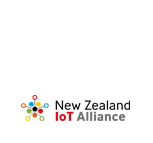Kia ora,
Last week, NZ IoT Alliance hosted a webinar ‘Next Tech Frontier: Exploring IoT and Multi-Modal AI’. We were fortunate to hear from Fraser Paine, Aware Group, Steven Dirven, Shape Technology, and our own chair, Kriv Naicker, who provided an in-depth exploration of the merging areas of IoT and multi-modal AI, offering exciting insights and possibilities. It opened with a focus on the seamless integration of IoT data with generative AI models; a combination that presents unmatched opportunities to transform areas such as predictive maintenance, health monitoring, smart cities, and more.
Fraser shared a few of their transformational use-cases at Aware Group, one demonstrating a revolutionary application that reduced the time taken to analyse animal samples for parasitic infections from six days to just six seconds. This innovation has led to targeted treatment, cost-saving, and even environmental benefits. Other real-world applications include the automation of sound differentiation, leading to real-time alerts, improved responses, and more accurate reporting.
A particularly innovative data platform was showcased that integrates numerous data streams into one dashboard, creating a digital twin of the city. This award-winning approach has significantly improved response times to events, such as traffic light failures, and has broader applications across various sectors, including utility companies. The integration of IoT and multi-modal AI through this use-case was nicely coined by Fraser as “a digital twin with a brain”.
Security was also a key theme, with a detailed discussion on robust security measures in IoT solutions, encompassing hardware, software, and governance aspects. What was evident is that there are complex issues around data sovereignty, and the need for constant consideration and balance between innovation and regulations. Balancing these factors and using frameworks such as the Māori data sovereignty standards was considered essential for future progress.
In a shift towards the evolving nature of AI, the conversation explored convolutional neural networks, statistical bias, and the emerging space of TinyML. These discussions touched on ethical considerations and the continuous change in what is considered AI. The importance of understanding data storage locations and the necessity of data sovereignty standards again also became focal points, considering both provider reputation and the guarantees offered.
The potential role of IoT in driving environmental sustainability was an inspiring topic. By creating connected ecosystems, IoT can influence how products are made, used, and disposed of, contributing to the larger goal of a circular economy. This approach represents a pathway toward more sustainable development, with implications across various industries.
Looking ahead, the session envisioned the convergence of many technologies, such as IoT, AI, and blockchain. This fusion is seen as creating new landscapes and industries, fostering innovation, and enhancing human experience. Collaboration, determination, and a shared sense of responsibility were highlighted as vital to leveraging these technologies’ positive impact.
As we strive together to create a thriving and connected tech industry in New Zealand underpinned by IoT, we hope that these sessions offer a compelling and insightful guide. If you would like to learn more about how IoT can be integrated into other emerging technology, please reach out to our team to inspire our next topic.
Alison Mackie,
Executive Director
NZ IoT Alliance
Read the latest IoT Alliance news here: Integrating IoT into emerging technology






